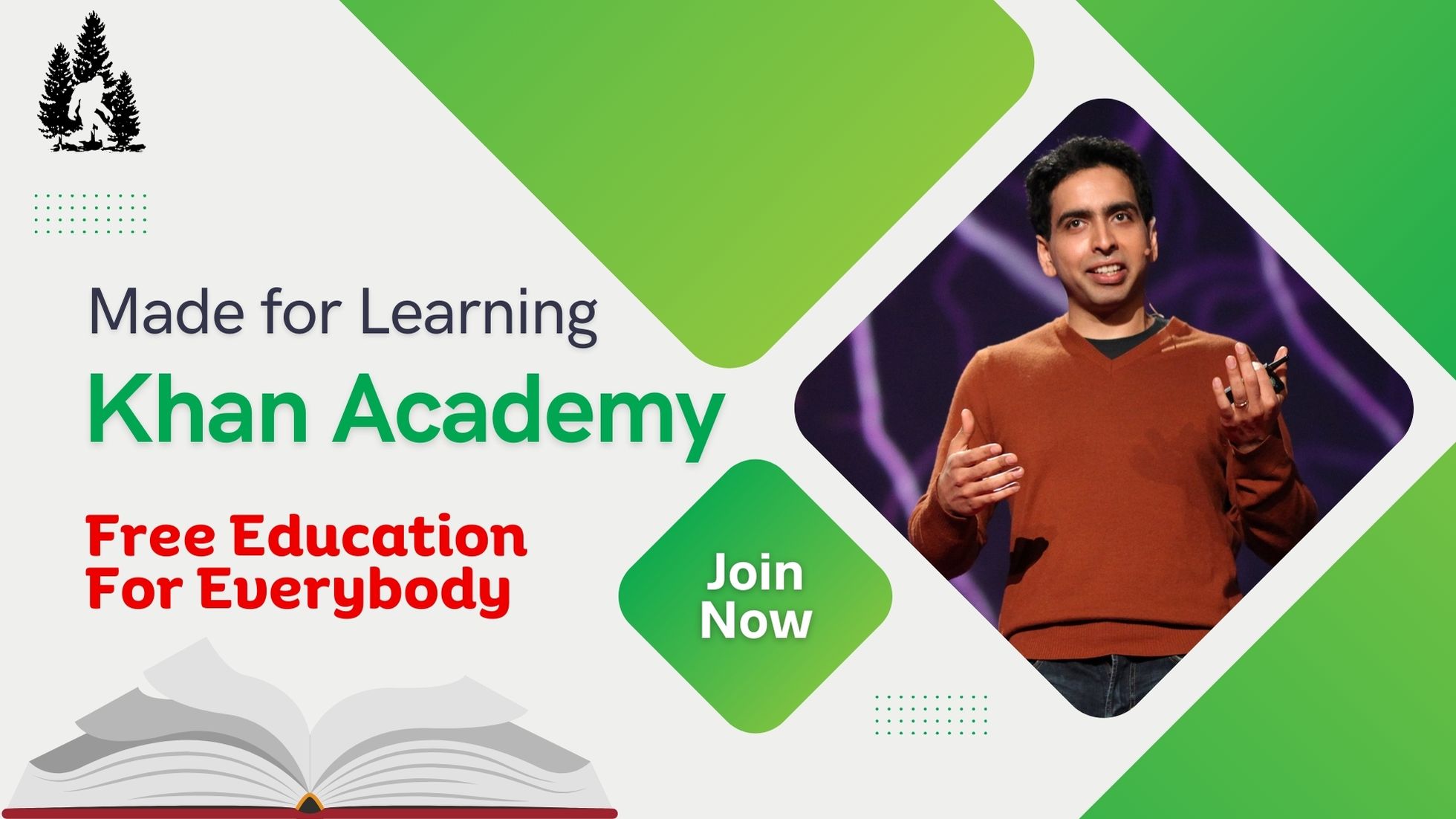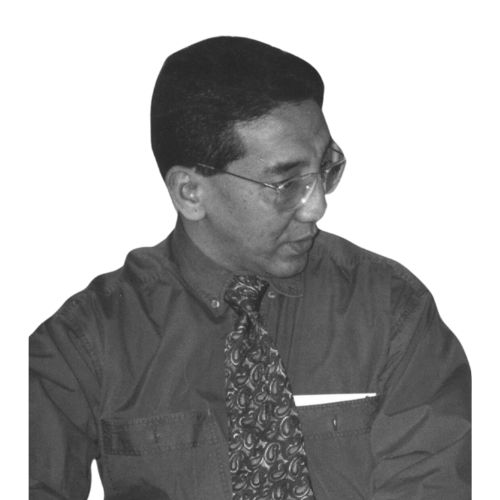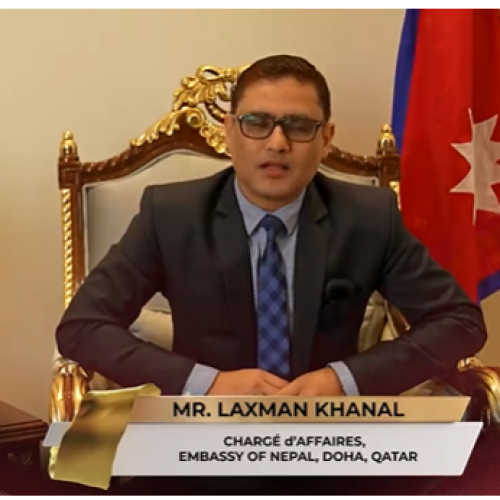Educators, education styles, and the facets that shape the world of learning and learners – all these aspects will be included in this category. Khan Academy has been a real-time support when my children were growing up. And that has also changed my way of looking at education, educators, and the problems students have for falling behind in subjects deemed hard. And the fault is not the students’.
Khan Academy levitates Salman Kahn’s dreams of online Education for everybody
Salman Khan: The Man Who Revolutionized Education
Salman Khan, an MIT-educated engineer and hedge fund manager, embarked on a remarkable journey in 2006 when he began creating online math tutorials for his cousin. Little did he know that this simple act of looking for suitable learning resources would spark a revolution in education.
Driven by a passion to make high-quality education accessible to everyone, Khan launched Khan Academy in 2008. This non-profit educational platform quickly gained popularity, offering free video lessons covering a wide range of subjects, from math and science to history and art.
Khan’s unique teaching style, characterized by his clear explanations and engaging whiteboard drawings, resonated with students worldwide.
His approach emphasized mastery learning, allowing students to progress at their own pace and receive personalized feedback.
Today, Khan Academy boasts over 18 million registered users from over 190 countries, making it one of the most influential educational resources in the world. The platform has been translated into over 60 languages, ensuring that its benefits reach a global audience.
Khan’s impact on education extends beyond the online realm. He has founded the Khan Lab School, a brick-and-mortar school in Mountain View, California, that implements his personalized learning approach. He has also authored several books, including “The One World Schoolhouse: Education Reimagined,” which outlines his vision for the future of education.
Salman Khan’s contributions to education have been recognized with numerous awards, including the 2014 Heinz Award in the Human Condition category and the 2016 Global Teacher Prize. His work has inspired educators worldwide to adopt innovative teaching methods and embrace the power of technology to transform learning.
Here are some facts and figures that highlight the impact of Khan Academy:
- Over 100 million people have used Khan Academy’s resources.
- Khan Academy’s videos have been viewed over 10 billion times.
- Khan Academy’s lessons have been translated into over 60 languages.
- Khan Academy is used by schools in over 190 countries.
Salman Khan’s legacy lies in his unwavering belief in the potential of education to empower individuals and transform societies. His work has made a profound impact on the lives of millions, demonstrating that access to quality education is not a privilege but a fundamental right.
We will look at the Khan Academy and its creator’s background from various angles.
A 2014 Harvard Business Review featured an interview with Salman Khan
The piece provides an insightful look into the journey and philosophy of Salman Khan, the founder of Khan Academy. Khan, initially a hedge fund analyst, began tutoring his cousins in math using online tools. Nine years later, his non-profit organization offers over 5,000 free web-based video lessons to millions of students globally, disrupting traditional education and related industries.
Learning and Success
Key concepts for success in today’s workplace, according to Khan, include taking charge of one’s learning, moving away from passive learning models, and embracing continuous learning, especially in areas like computer programming, law, and statistics. Khan emphasizes the importance of fostering curiosity and personalized education through technology, allowing students to explore subjects deeply and at their own pace, much like his experiences in a gifted program in school.
Approach to Education
Khan also discusses the relevance of his educational approach to the business world, advocating for lifelong learning, mastery of content, and practical application over traditional academic credentials. He notes the limitations of human concentration and suggests that meetings should be interactive, with information being conveyed through videos or memos for efficiency.
Human Touch and Education
Khan stresses the importance of a human touch in teaching, blending intuition and personal expression. His approach to education, influenced by his sensitivity to condescension and a desire for deep understanding, mirrors an iterative “lean start-up” model. Despite Khan Academy’s growth and funding, Khan chooses to maintain its original, simple digital blackboard model for content delivery.
Addressing criticism, Khan values constructive feedback and continuously updates and improves content. He believes in the impending obsolescence of business models that charge for access to information, seeing opportunities for traditional publishers to adapt in the digital age.
As a non-profit, Khan Academy attracts diverse talents motivated by its mission. Khan describes his management style as striving for a balance between approachability, authority, and open feedback. He believes in the organization’s sustainability beyond his personal involvement.
Khan’s decision to pursue Khan Academy full-time was a gradual process, influenced by his satisfaction in helping his cousins and the emerging success of the platform. He acknowledges the influence of supporters like Bill Gates and Carlos Slim, noting their curiosity and hands-on approach.
Finally, Khan highlights the importance of work-life balance, dedicating weekends, and evenings to his family, which he considers crucial for his overall well-being and productivity. (HBR, 2014)
It will also be interesting to see some hard facts and figures that makes KHAN ACADEMY Education Platform a go-to resource for students as well as teachers.
Popularity of Khan Academy
Khan Academy has over 7.94 million subscribers on YouTube and its videos have been viewed more than two billion times as of July 2023.
AI in Khan Academy – what place does it occupy?
In an interview with The Crimson, Khan Academy founder Salman Khan spoke about the importance of artificial intelligence tools like ChatGPT in education and how they can be transformative for the future of learning. He also argued that banning such tools in schools is the “wrong approach.”
Khan Academy’s KHANMIGO as teaching and Learning Assistant
Yes, Khan Academy offers courses on AI for education. The platform has a dedicated section on AI for education that covers topics such as generative AI, ethics and AI, AI 101 for teachers, and practical AI for education 1.
Khan Academy also has an AI-powered guide called Khanmigo, which serves as a tutor for learners and an assistant for teachers 2.
Subjects covered in Khan Academy
Here are some of the subjects covered by Khan Academy:
- Mathematics: Pre-K to early college level math, including arithmetic, algebra, geometry, trigonometry, calculus, and statistics 1.
- Science: Biology, chemistry, physics, cosmology, astronomy, and more 2.
- Computing: Computer programming, computer science, and more 1.
- Arts and humanities: Art history, US history, world history, economics, and more 1.
- Test preparation: SAT, LSAT, MCAT, and more 1.
Khan Academy also offers courses in life skills, such as financial literacy, personal finance, and social and emotional learning 1.
Please note that this is not an exhaustive list, and Khan Academy continues to add new courses and subjects to its platform.
Humble-stumble:What started off as a tutoring aid during teaching session with his cousin, using a Yahoo tool called Doodle notepad. he realized that the notepad was an effective tool for remote learning and began to create more videos on various subjects. His videos gained popularity and he eventually quit his job as a hedge fund analyst to focus on Khan Academy full-time.
He names it the “free, world-class education for anyone, anywhere” and that he wants to use technology to make this possible. This is also his envisioned platform that allows students to learn at their own pace and provide teachers with data on student progress so that they can tailor their instruction.
(The above information has been used from Wikipedia on Salman Khan and his Khan Academy)
Khan Academy’s role in after-Covid scenario
A post-COVID interview in a popular New York magazine features Salman Khan, the founder of Khan Academy, discussing the challenges and opportunities of distance learning during the COVID-19 pandemic, where many schools have shifted to online formats.
This is an important aspect of education – making it a milestone in the history of education considering the impact – visible as well as invisible – that goes far beyond just a cause-and-effect narrative. The realization that you can work from home has meant that one does not necessarily need to be present at the place of work. Same goes for education. If a student is sick or unable to attend it is not an indication that the student will miss the class. This then boils down also to the fact that parents need not necessarily have to worry if they can opt to work from home.
Khan emphasizes the importance of adapting to this new educational landscape, advocating for shorter, more focused online sessions, especially for younger children, to prevent screen fatigue and burnout. He advises schools to concentrate on core subjects like reading, writing, and math, and to rethink their approach to teaching rather than simply converting in-person classes to video conferences.
Khan also addresses the significant concern of increasing educational inequality due to remote learning, as some students lack access or the necessary support at home. He acknowledges the limitations of Khan Academy in addressing this gap, emphasizing the need for additional support mechanisms for these students.
For parents and guardians, Khan suggests actively understanding and participating in their children’s education while also communicating any concerns or unsustainable demands to the school. He believes that this period of enforced online learning could accelerate the adoption of technology in education, potentially leading to more flexible and varied educational models post-pandemic.
Khan also warns of the potential stress and anxiety caused by distance learning for both parents and children. He advises maintaining a balance, being mindful of mental health, and communicating openly about boundaries and limitations. He hopes that this period will lead to greater understanding and flexibility from schools, employers, and family members, emphasizing self-care and focused, quality learning over trying to accomplish too much.
( I will continue to follow more interesting articles on this extremely valuable resource}








